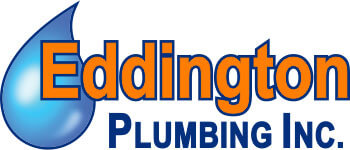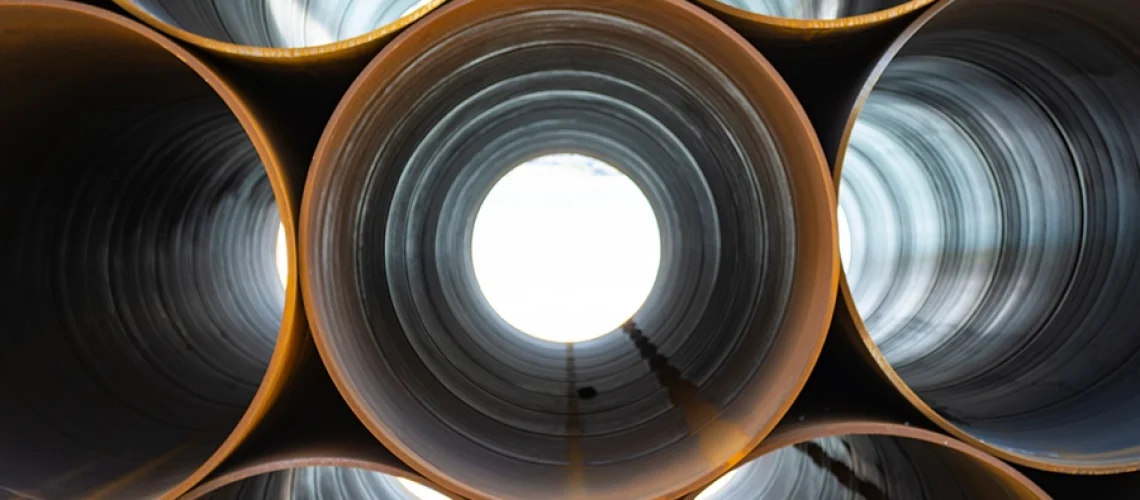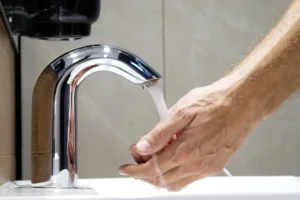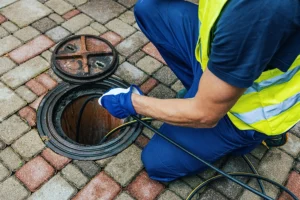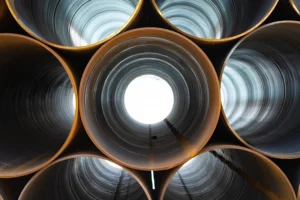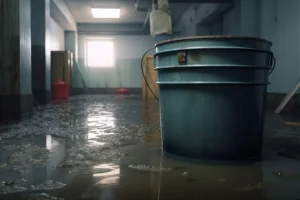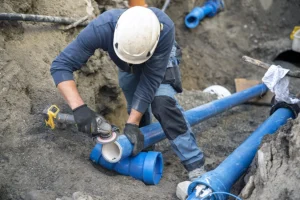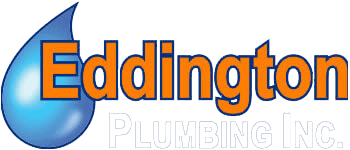For homeowners in Springfield, IL, grappling with the aftermath of water backup through floor drains during heavy rains is an all too familiar ordeal. In such situations, an overhead sewer system emerges as a practical and effective solution. Unlike traditional gravity systems, overhead sewer systems offer several key benefits that can alleviate the headaches associated with water backups. In this blog, we will delve into the reasons why your gravity-based sewer system might be prone to back up and explore the distinctive features of overhead sewer systems that make them a reliable alternative.
Additionally, homeowners in Springfield, IL, may find financial relief in the form of potential reimbursements for upgrading to an overhead sewer system. Exploring such incentives can make the decision to invest in this upgraded infrastructure even more appealing. To find out more information about upgrading to an overhead system and the potential reimbursements available to you, contact our team at Eddington Plumbing, Inc.
Gravity Sewer Systems
If your home was constructed before May 1st, 1975, and has not undergone sewer system updates, chances are it is equipped with a gravity sewer system. Gravity sewer systems are designed to rely on the natural force of gravity to move sewage from the home to the municipal sewer system. Typically situated at the lowest point of the home, often in the basement or cellar, these systems operate on the principle that water always seeks the lowest point. Consequently, the lowest point coincides with the location of the gravity system. In a gravity sewer system, sewage flows downward from various fixtures in the home, collecting in the basement or cellar, and then travels through pipes that lead to the city’s sewer system. While this conventional setup has been in use for many years, it presents a vulnerability during periods of heavy rainfall.
When the city’s sewer system reaches its capacity due to excessive storm water, the gravity sewer system becomes susceptible to overloading. The overwhelmed municipal system can result in the backflow of storm water and sewage into basements or toilets of homes with gravity sewer systems, causing significant damage and disruption. The potential havoc wreaked by storm water and sewage overflows underscores the limitations of gravity sewer systems during extreme weather events. If your home is facing risks due to a gravity system, contact Eddington Plumbing, Inc. in Springfield, IL, today to fortify your home against potential water damage and maintain the integrity of your property.
Overhead Sewer Systems
Unlike traditional setups that position pipes at the lowest point of the home, often in the basement or cellar, an overhead sewer system strategically places pipes just below the first floor. This innovative design minimizes the risk of sewage backup during heavy rains and provides homeowners with a more secure and efficient wastewater management solution. With an overhead sewer system, sewage departs from the home just beneath the first floor, a location that ensures pipes are positioned above the ground. This crucial distinction means that wastewater cannot become trapped, mitigating the potential for backups.
To achieve this elevation, plumbing from the basement is equipped with a pump system, allowing for the efficient removal of sewage from the home. By elevating the sewer lines, an overhead system virtually eliminates the risk of backflow, providing homeowners with a higher level of protection against the damage and inconvenience associated with sewer backups. Contact Eddington Plumbing, Inc. in Springfield, IL, today to explore the advantages of an overhead sewer system.
Process of Switching
The transition to an overhead sewer system involves a comprehensive process of reconfiguring existing plumbing infrastructure, particularly in the basement, laundry, and drain areas. The key modification includes redirecting these plumbing lines to a newly installed ejector pit. Situated strategically, the ejector pit serves as a critical component in the system tasked with pumping sewage overhead. The sewage then exits the foundation towards the middle of the basement wall. This departure from the conventional gravity-driven approach minimizes the risk of water backups during heavy rainfall. Simultaneously, upper-level plumbing undergoes a redirection overhead, allowing the flow to gravitate toward the top of the basement wall.
This dual modification ensures that all plumbing systems are effectively elevated, mitigating the likelihood of sewage accumulation at the lowest points in the home. Once outside the building, the rerouted sewer lines are seamlessly connected to the existing sewer lateral, ultimately linking to the city sewer main. The intricacies of the conversion process may vary for each home, depending on its unique characteristics and requirements. Eddington Plumbing, Inc. stands as a reliable resource for homeowners seeking guidance on the intricacies of switching to an overhead sewer system, ensuring a tailored and effective solution for their specific needs.
Reimbursement Programs
For homeowners in Springfield, IL, whose residences were constructed before May 1st, 1975, and are equipped with gravity sewer systems, the prospect of experiencing water backup due to an overload of the city’s sewer system is a genuine concern. However, there is a potential solution in the form of the reimbursement program offered by the city of Springfield. This program is specifically designed to assist qualifying homeowners in addressing the challenges posed by water backups related to overloaded municipal sewer systems. If your home falls into this category and has experienced sewer backups, you may be eligible for the reimbursement program.
This initiative covers up to 75% of the costs associated with the modification to an overhead sewer system, providing financial relief for homeowners seeking to upgrade their plumbing infrastructure. It’s important to note that carpentry costs, if necessary for the modification, are excluded from the reimbursement coverage. The program offers a maximum reimbursement cap of $3500, making it an accessible means for homeowners to enhance their sewer systems and safeguard their properties from potential water damage. To explore whether your home qualifies for reimbursement and to learn more about the specific details and application process, call Eddington Plumbing, Inc. today.
